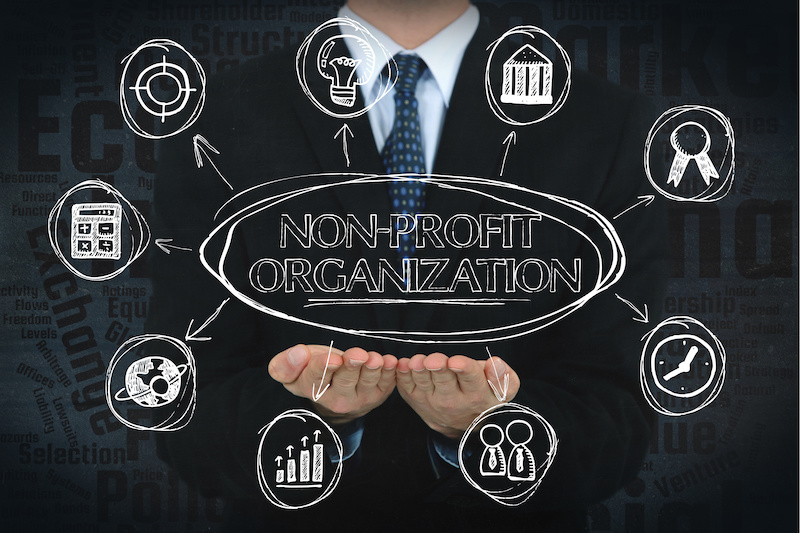
Financial principles are regulated differently when it comes to accounting for nonprofits. That’s why it’s important to know the differences between regular accounting principles and nonprofit accounting principles. It’s especially important to utilize a dynamic accounting solution that has the flexibility to handle the complex nature of tax accounting for nonprofits.

What are the Main Differences Between Nonprofits and For-Profits?
Businesses or for-profits are created mainly to generate a profit. Nonprofit organizations are created to address certain needs in society. Because of this, nonprofits will issue a statement of activities instead of an income statement issued by for-profit businesses. However, some people mistakenly assume that a nonprofit organization cannot legally earn profits. This isn’t the case. In fact, acquiring revenues that exceed expenses is needed for nonprofits to flourish and withstand occurrences such as:
- Unexpected expenses
- Uneven flows of revenues
- A decrease in revenues
- Rising costs due to inflation
- An increase in staffing needs
- An increase in the need for its services
- A purchase or replacement of needed equipment
Tax-Exempt Status
Another major difference between nonprofit tax accounting and for-profit accounting is their U.S. tax status. Nonprofits are exempt from federal income taxes as long as they apply and are approved by the IRS. For instance, public schools, churches, and charities are great examples of nonprofits that will qualify as tax-exempt. Their donors’ contributions will also qualify as a charitable deduction on the donors’ income tax returns.
However, there are nonprofit organizations that qualify as tax-exempt, but their donor’s contributions do not qualify as charitable deductions. Social organizations like college fraternities and sororities, amateur sports clubs, and chambers of commerce are a few non-profits whose donations are not tax-deductible.
Financial Statements for Nonprofits
It’s possible to manually produce financial statements from your ledger or spreadsheet, but it takes a lot of accounting knowledge and dedicated time to accomplish. In the chaos of tax season, getting these documents as efficiently as possible will save you a lot of time and stress. There’s a better way. In most cases, it’s better to let your nonprofit accounting software create the financial statements needed for nonprofit tax accounting for you.
Even though nonprofits don’t usually pay taxes, they do have to prepare an annual return (Federal Form 990) to showcase how they used their funds and fulfilled their mission. Tax-exempt organizations are held to an extremely high standard. They can expect donors, the government, the media, and the general public to scrutinize their operations. So, their financial statements have to clearly justify their purpose. Also, if a nonprofit organization doesn’t fill out an annual report or turns the report in late, it becomes subject to penalties and fees issued by the IRS.
To learn more about the differences between tax accounting for nonprofits and accounting for regular businesses, be sure to check out the IRS’ section on charities and nonprofits.
Essential Nonprofit Software
As an employee at a nonprofit organization, you don’t have time to focus on repetitive tasks that require manual data input. You need software that gives you the time to focus on more important decisions, like your impact on society. Your organization’s goals can be simplified with an innovative nonprofit tax accounting software that is connected to a bonafide customer Relationship Management (CRM).
The keys to your organization’s success start with technology and continue with flexibility and community. The Salesforce nonprofit success pack (NPSP) gives users a flexible, open data architecture and adds pre-built constituent and donor management components. Essentially, it’s built for nonprofits by nonprofits. This is all thanks to a large global community of developers, users, and partners actively supporting NPSP to support you.
Accounting Seed is Integrated into the NPSP
Forget the headaches of spreadsheets and the hours of manual data entry. With Accounting Seed, users can seamlessly manage funds, projects, and programs with varying financial factors on a single platform.
Our product gives you complete control over the financial management lifecycle while letting you view financial data in real-time to make key decisions. Reach out to an account executive today to see how our product can influence your nonprofit organization.
See Accounting Seed in action
Get a close-up view of how accounting on Salesforce can eliminate the need for costly integrations—and silos of mismatched information—by sharing the same database as your CRM.


